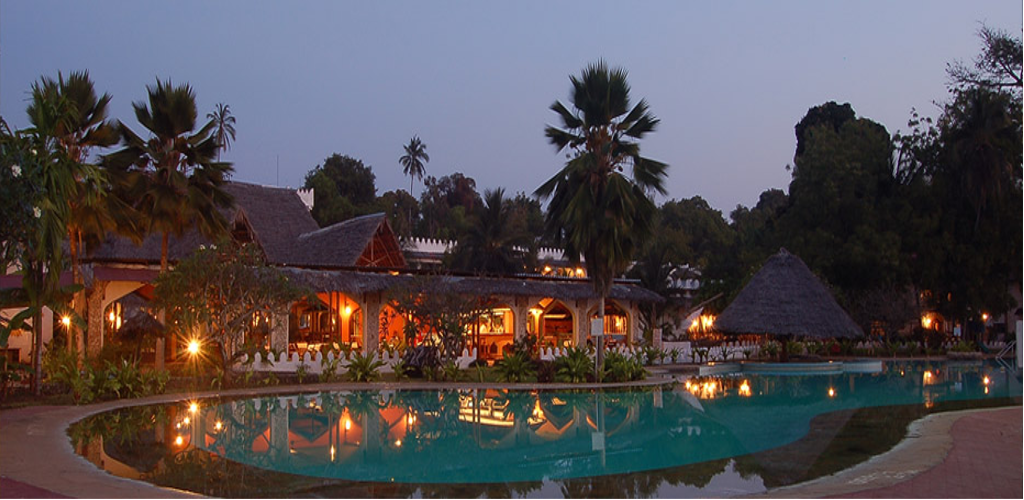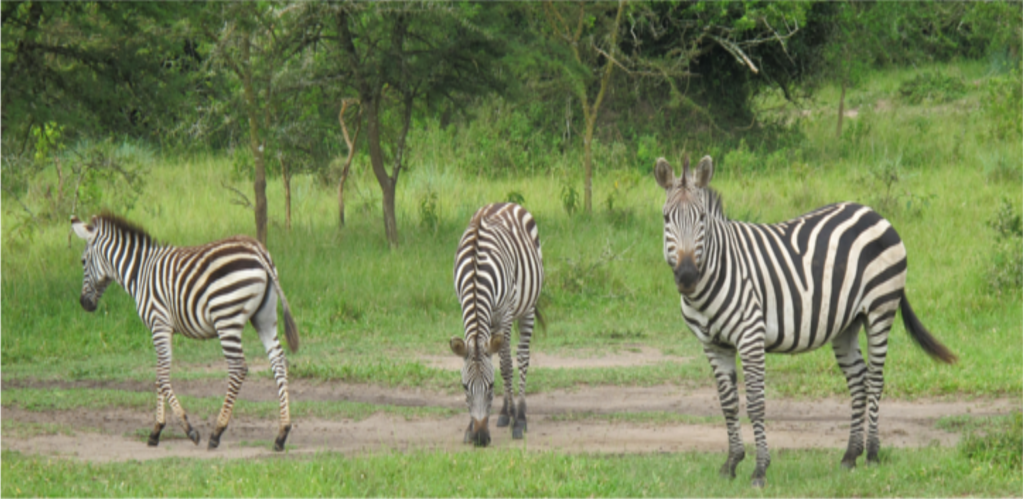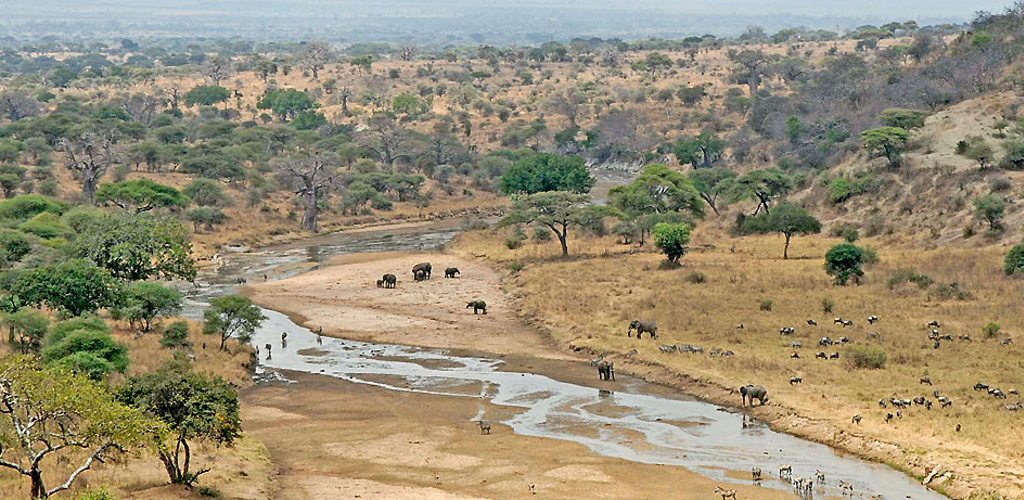Frequently Asked Africa Safari Questions
You can book a suggested Itinerary from our website. These trips offer the convenience of a pre-set itinerary and a fixed price.
We also organise private Safaris. That means that only you and your travel partner(s) will be on the tour. There will be only you on the transfers, the Safari vehicle and the tours. This gives you much flexibility on where to stop and tracing your favourite animals.
Or you can start from scratch and work with us to develop a totally customized itinerary and schedule. We are enthusiastically open to side trips, detours, special needs and special plans.
For a booking we need an advance payment of 20% of the tour price, the remaining balance you can pay here at arrival or wire it to our account 40 days to commencement of the trip. Please note that we don't accept US$ notes issued before the year 2006!
The advance payment you need to wire to our account in Uganda. We do not encourage using credit card payments at present since we have had some problems with frauds in the past. We do not consider it safe at present and do therefore, prefer payment by bank (wire) transfer.
After receiving your advance payment (or the proof of payment by e-mail) we will start to book all services for you. After confirming all services we come back to you with the confirmation voucher.
Please refer to Our Booking Terms and Conditions
• Full board lodging (3 meals a day) on Safari, whether in hotels, lodges, tented camps, mobile tented camps, or bush camps as specified in your itinerary
• Bed and breakfast in major town hotels
• All your park and game reserves fees, including conservation fees
• Unlimited game drives in our safari vehicles-window seat guaranteed.
• All in-country transportation as specified in your itinerary
• Experienced safari driver /guides.
• Excursions, as specified in your itinerary
• Unlimited bottled water in our safari vehicles
• International airfare
• Any expenses incurred in conjunction with this trip while in your home country.
• Cost of obtaining required passports or visas
• Airport departure taxes
• Travel Insurance. For your peace of mind. please make sure that you obtain a convenient travel insurance in your home country We recommend that you visit www.insuremytrip.com, where you will be able to compare policies and information from 18 leading companies. Most policies offer Trip Cancellation, Baggage, Medical, Dental, Emergency Evacuation, 24 Hour Traveler Assistance, Baggage Delay, Travel Delay, and Accidental Death Coverages. Some policies also have options for Collision/Damage coverage for rented cars, Flight Insurance (a form of Accidental Death Coverage while flying only) and added Emergency Evacuation insurance. Some package policies include coverage for children at no extra charge.
• Excess baggage fees. Note: Baggage is restricted to 33lbs/15kgs for domestic flights, per person in a soft sided bag on all charter flights.
• Medical expenses, meals or activities not specified or indicated as optional;
• Tips /gratuities to drivers/guides/tour leaders. Note: Tipping is discretionary based on services provided; Tipping guidelines are: $10 per day for professional safari guides/tour leaders; $3-$5 per day for camp staff, e.g. waiters, housekeepers, which is a communal tip that is shared among the staff); gorilla tracking porters - $15; driver/guides - $10 - $15); restaurant waiters/waitresses – 10% of bill; hotel housekeeping - $2 per day. Refer to how much do I have to tip on this page
Our trips use tiered pricing based on logistics. Getting people into remote areas where the best game viewing exists is more costly when there are only one or two people in the vehicle rather than four or five. Economies of scale result in lower pricing for four or five people traveling together as opposed to pricing for a couple traveling alone. Our pricing structure is tiered so you pay for the costs of your safari and don't subsidize other groups.
Our trips have no hidden costs. We don’t quote you a low price and then tell you that, in addition you have to pay your park fees or that in-country transportation is extra. When we quote you a trip price it includes almost everything while you are in-country. The few items not included like gratuities, passport and visa fees, and beverages are set forth above.
Our trip prices range over a wide scale. Price determining factors are as follows:
The number of people traveling in the group
Whether your in-country transportation is by scheduled flights, chartered plane or Vehicle
Whether you choose to stay in up-market, mid-range or budget accommodation
How remote you want to go
Whether you want to view game from a mobile tented camp
How many times you would wish to trek the gorillas (each gorilla permit costs US$500)
We can work with you to bring your safari within your budget range. Most of our trips are Suggested Itineraries, but you can vary them as you want. Let us know what your budget is and we will do our best to design a trip that gives you the experiences you want within the budget you set.
For gorilla trekking trips, because gorilla permits get sold up to 2 years in advance and get sold on first come first served basis, we suggest booking well in advance.
For Tanzania and Kenya Safaris, there is no cutoff. However, flights into Kenya and Tanzania are limited and we find that there can be problems getting seats on airlines if you try to schedule less than two months ahead of time. Peak seasons also book up as far as nine months ahead of time. Securing accommodation also becomes a problem as most lodges get booked up. Mid to late December is a busy time in both Kenya and Tanzania. Outside of peak seasons, you should have no trouble booking if you schedule your safari at least six to eight months in advance.
Let's start with when it's raining season: November, April and May. During those month Safaris are possible, and it is by far not raining every day. Even if, then only for a few hours. But it can get hard if you want to visit remote places.
The mass migration moves from Kenya into the Serengeti in Tanzania in December, January, February, and March. That can be a spectacular time to travel in Tanzania. Climate changes are triggering some changes in the timing of the migration, so check with us if you are interested in traveling on the edges of the normal migratory months.
This doesn't mean that there isn't great game viewing at other times. Off-peak season can be a very relaxing time. The lodges are less crowded and the game reserves not involved in the migratory pathways have as much game as normal. It's all a matter of what you want. Check with us if you have specific time frames in mind for your travel and we can help you plan where to be so you get the best possible game viewing experiences.
The climate of East Africa varies with each region because of the varied topography. Broadly speaking, the climate is hot and humid at the coast and becomes less humid as you move inland. The heat is moderated largely by altitude, therefore the cooler areas are found in the highlands. Most of the areas frequented on normal wildlife safaris are in areas of moderate climate. In general, the coolest months are from June to October and the warmest from December to March. Rainfall generally comes in two seasons, the ‘long rains’ from mid-March through May, and the ‘short rains’ during November and the first half of December. Again, there will be slight regional variations. Rainfall varies from less than 10 inches per year in the semi-arid areas of Kenya’s northeast to about 60 inches along the coast and over 120 inches in the mountainous rainforest areas, such as Uganda’s southwest
Traditional safaris require little or no physical activity as you spend most of the time inside your safari vehicle. For gorilla tracking trips one should be in reasonable shape and state of fitness to track the gorillas and chimpanzees.
The dress for our safaris is informal; therefore lightweight, casual clothes are appropriate. Safari clothing should be neutral in color (tan, brown, khaki, light green). This list is intended merely as a guideline, so you should use your own judgment and experience in packing.
Shirts: Cotton, short-sleeved or T-shirts, long-sleeved, if you are sensitive to the sun.
Trousers: Shorts may be worn in some places. However, long, cotton field pants are advisable in some of the areas in which we will be walking.
Hat: A wide-brimmed or peaked hat for sun protection.
Sweater: Light sweater, jacket or sweatshirt for cooler evenings. It cools off quite drastically in the higher elevations.
Bathing suit: Some of the hotels or lodges will have pools.
Raingear: Poncho or raincoat just in case, especially if gorilla trekking is on your itinerary.
Gloves: For gorilla and chimpanzee treks
Shoes and socks: Trail shoes or running shoes with a good solid grip and good support and cotton socks are the most versatile and comfortable footwear for this trip. Some people prefer their well broken-in hiking boots.
Accessories
Daypack: Bring a small backpack to carry bottled water, extra socks, moist travel wipes or sanitizing hand lotion, field guides, film, and your personal items.
Flashlight: Bring a strong flashlight (and extra batteries) in case we go on a night walk or power failures.
Binoculars: Binoculars are an essential piece of equipment on safari.
Miscellaneous: Personal soap, extra pair of prescription glasses, pocket calculator, travel alarm clock, laundry soap (for washing delicates), large zip-lock bags for damp laundry, and paperback books if you are a reader.
Note: We recommend that you put any sharp objects such as nail files, Swiss army knife, scissors, etc. in your checked luggage or they will be confiscated by airport authorities at check-in.
Electricity
Electric current is 220-240-volt AC 50 Hz. Power sockets are usually of the three-square-pin variety as used in the UK, although some older buildings have two-round-pin sockets. Bring a universal adaptor with you.
Some lodges do not have electricity 24 hours a day. Generators supply the electricity and often the sleeping rooms have very few electrical outlets. You should also bring a device that allows you to plug in more than one item to one outlet to allow you to charge multiple batteries and a computer at the same time.
Some vehicles have outlets for charging batteries during your game drives, but some do not. Ask your safari driver/guide.
Generally, it is advisable not to drink or brush your teeth with tap water in East Africa. Bottled water is always available.
The food served at most lodges is of the highest quality. Gourmet cooks bake fresh breads and produce soups, salads, and entrees that could easily appear on tables at top restaurants around the world. Meals are international in flavor with soups, salads, pasta dishes, meat and fish dishes, and breads.
Normally, your wake up calls will be accompanied by tea or coffee and cookies before your morning game drive or bush walk. Returning to camp late morning, brunch is served with fresh fruit, cereals, bacon, eggs, sausage and toast.
Otherwise, lunch is usually a warm dish served with salads, quiches, and cold meats.
Dinner consists of an appetizer and soup, followed by meat, fish and pasta dishes served with fresh vegetables and sauces. Dinner is followed by tea or coffee and dessert.
We are happy to accommodate special diets and appreciate knowing about them in advance.
South African wines are sold everywhere, and are excellent. Tap water is not drinkable in most areas, only bottled water should be consumed.
Approximate prices of beverages (depending on hotel/location):
Bottled water US$1 - 2
Soft drinks: US$1
Beer: US$1.5 - 2.5
A glass of wine: US$ 3 - 4
A bottle of South African wine: US$ 20 - 30
You should consult your physician regarding the best choice of vaccines for your trip. Recommendations will depend on many individual factors, including your precise travel plans. It is recommended that you see your doctor at least four to six weeks before your trip to allow time for vaccines to take effect.
A Yellow Fever Vaccination Certificate could be demanded from visitors on arrival in East Africa as a precautionary public health measure.
Travelers who before coming to East Africa intend to transit through endemic areas even for a brief stay are strongly advised to protect themselves with vaccination against Yellow Fever at least two weeks prior to their departure from their own home countries. If traveling to East Africa, it is highly recommended that you be inoculated against Yellow Fever as the countries have tropical climate and are considered a Yellow Fever risk area.
Countries considered as The Yellow Fever Endemic Zones include the following:
Senegal, Gambia, Guinea Bissau, Sierra Leone, Liberia, Cote D'Ivore, Burkina Faso, Ghana, Nigeria, Mali, Niger, Chad, Central African Republic, Togo, Benin, Sao Tome and Principe, Cameroon, Gabon, Congo, Democratic Republic of Congo, United Republic of Tanzania, Uganda, Angola, Zambia, Uganda, Kenya, Rwanda, Burundi, Ethiopia, Somali, Sudan and Equatorial Guinea, Panama, Venezuela, Colombia, Ecuador, Peru, Brazil, Guyana, Suriname, French Guiana and Bolivia.
Travelers who happen to be on transit in any of the Yellow Fever Endemic Countries will be exempted from the requirement of inoculation against Yellow Fever; Transit means remaining at the Airport under the Management of Airport Authority awaiting travel connection.
A travel clinic directory is available through The International Society of Travel Medicine: http://www.istm.org/
Other vaccinations like hepatitis, tetanus are recommended.
Yes you require a valid passport and visa to enter Kenya, Uganda and Tanzania and Rwanda.
Please make sure that your passport is valid for six months from the date of your safari and that it has a sufficient number of unused pages for endorsements. We suggest that you take two photocopies of the information page of your passport and keep one in a separate part of your luggage and give the other to our East African partners during your orientation meeting upon arrival in East Africa. We also recommend leaving a copy with your contact person at home. If you lose your passport, this will make it easier to replace.
Please do not leave your passport or any other valuables in hotel rooms or unsupervised vehicles, planes, etc., while you are on safari.
Visas are available in your respective countries from the Uganda embassy/high commission or, since many people prefer not to mail their passports to Embassy, Consulate or tourism offices, you can apply for your visa online for Uganda, Rwanda and Kenya and pay for it upon arrival at the airport.
The East African Visa costs US$100 and enables entry to three East African countries; Uganda, Kenya and Tanzania
Embassy Websites:
Kenya http://www.kenyaembassy.com/ US$ 50.00 per person
Uganda http://www.ugandaembassy.com/ US$ 50.00 per person
Tanzania http://www.tanzaniaembassy-us.org/ US$ 100.00 per person
A photo safari is a special experience. Long days, many animals, changing weather, variable geography and differing environments all offer excellent opportunities for outstanding photography. While the equipment and techniques are important, it is the photographer who creates the images.
The following information may help you get the best from your trip.
Our safari vehicles are four wheel drive Land Cruisers or Mini-buses. They have both sides and a roof, as distinguished from the vehicles in southern Africa, which have neither. The roof rises up several feet to allow passengers to stand and photograph 360 degrees unobstructed by windows and the like.
Under most conditions, you will not be able to safely get out of the safari vehicle during game drives.
Many photographers prefer early morning and evening game drives rather than those in the middle of the day. These are possible only if you will return to the same lodge. When planning your itinerary, you’ll need to consider how many early/late drives you prefer. Some adjustments may be possible if made well in advance of your arrival date.
On those days when you are driving from one lodge to another, a boxed lunch can be arranged.
Vehicles are not allowed off road in national parks and reserves. There are numerous tracks for vehicles in the parks, and few, if any, paved roads. However, in areas outside the parks, vehicles can go off road and depart from the tracks. Photographers often want to photograph an animal from a particular angle, which may not be possible if you are in a national park as the vehicles are not allowed to go off road.
Please note that when photographing gorillas and chimpanzees, no flash is allowed.
Camera Gear
The most important equipment is the fastest long lens you can afford. Nothing better captures an animal or a bird in low light. Weight is not a big problem because you will be in a safari vehicle, although weight may be an issue with airlines. You should bring a wider lens as well.
The Nikon DX format cameras, or equal from other manufacturers, are helpful because the sensor effectively extends the lens length by about 1.5 times. Cameras that do well with high ISO are very useful in low light situations. If you have a lens such as a 400mm or similar, you will be well served by having a second camera body with a shorter lens, such as a 70-200, or even wider to minimize changing lenses at critical moments. Sometimes, a long lens reduces the image too much. While you will see many birds where a long lens is essential, you will also see herds of elephant and will need something wider.
You will be safe if you bring three batteries per camera body. You will be using one with a second in reserve while the third is charging. If you are using two bodies, five batteries will be adequate.
A bean bag is the most inexpensive and easily used camera support in safari vehicles. Bean bags can be placed on the edge of the vehicle while you are standing. Kinesis offers a pre filled bag weighing about one pound. There are a myriad of specialized support devices at substantial prices that will mount your camera and lens on the vehicle in various ways. Really Right Stuff makes a great variety of such devices.
A laptop computer is a must if the main purpose of your trip is photography. Check your laptop battery before departure to make sure it provides power for an adequate length of time. Make sure you have at least one card reader. You need to bring memory cards with sufficient capacity. You may find that it is most convenient to have a card with sufficient capacity so that you do not have to change cards during your game drives. There may be times when you will shoot in burst mode. Try to bring cards that can accept data at the fastest possible rate.
Neither a tripod nor a monopod is useful in safari vehicles because there is not enough space. The only use for a tripod on safari is when shooting outside the vehicle.
A good pair of binoculars can be very helpful. Many animals are colored to make them difficult to see. Others may be at a distance. It is much easier to scan an area with binoculars than with a long lens.
In general, at hotels, lodges, restaurants, etc., a 10% tip is the norm. This assumes that you received service that you consider to be good/friendly/pleasant. If you did not receive good service, then there is no point in tipping. If you received service that you consider goes beyond that which you would normally expect, then you should tip accordingly. A waiter or porter normally earns between $4 and $8 per day, depending upon the establishment (small café or big hotel), so tips in excess of a day’s wage are exceptional, unless they are being shared.
On safaris, it is common practice to tip drivers, guides, porters and other staff if service has been good. Some recommendations for tipping:
Driver/guides: $10 per client per day
Camps and lodges: $5 per client per night
Gorilla trekking guides: $15 per client per trek
Gorilla trekking porters: $15 per client per trek
National park naturalists: $10 per client per walk
It is difficult for locals who receive tips in small denominations of US currency to convert to the local currency. It is best to change money into the local currency and obtain small bills. Tipping with the local currency provides the recipients with the most value from your tips. Please do not tip in US$ coins as they cannot be exchanged.
Money Matters
The currency in Kenya is the Kenya shilling, in Uganda is the Uganda shilling, and in Tanzania, the Tanzanian shilling. The exchange offices in the airports and border crossings have up-to-date exchange rates for all major world currencies, including U.S. dollars. Most hotels will exchange your currency at moderate premiums, but usually at lower rates than the banks. We suggest that you take cash in US$ or traveler’s cheques in US$ in $20 or $50 denominations. Major credit cards are accepted in East Africa at larger hotels and in some shops in the main cities.
For Uganda: We suggest that you take cash in US$ in $100 or $50. Notes must be dated 2002 or newer and must be in good condition, not torn, etc., or banks will refuse them. Traveler’s cheques are not popular and will receive a very low rate of exchange. Additionally, it will be difficult, if not impossible, to change traveler’s cheques outside of the large cities.
PLEASE NOTE:
It is illegal to exchange money with anyone but a licensed money-changer.
It is an offence to disfigure Kenyan, Tanzanian or Ugandan currency.
The currency in Uganda is the Uganda shilling. The exchange offices in the airports and border crossings have up-to-date exchange rates for all major world currencies, including U.S. dollars. Most hotels will exchange your currency at moderate premiums, but usually at lower rates than the banks. Major credit cards are accepted in East Africa at larger hotels and in some shops in the main cities.
For Uganda: We suggest that you take cash in US$ in $100 or $50. Notes must be dated 2002 or newer and must be in good condition, not torn, etc., or banks will refuse them. Traveler’s cheques are not popular and will receive a very low rate of exchange. Additionally, it will be difficult, if not impossible, to change traveler’s cheques outside of the large cities.
Under no circumstances, please do not give anything - including candies, pens, empty water bottles, or money to children as this teaches them to beg. We prefer you to arrange donations through local leaders or teachers instead and would be happy to help with arrangements in advance.
The roads in East Africa are generally bad to very bad. Consequently, driving times may be long. For example, in Uganda, the drive from Entebbe to Bwindi may be up to 12 hours.
While on safari, you will find local people in East Africa to be extremely friendly and welcoming. However, before taking photographs of members of the local community it is asked that you please get their permission first. Your driver/guide will be able to help you with this if needed. Please do not give money in exchange for photographs. If you wish to send copies of photographs back to East Africa, we will make sure they are given out the next time our driver/guide is in that location.





